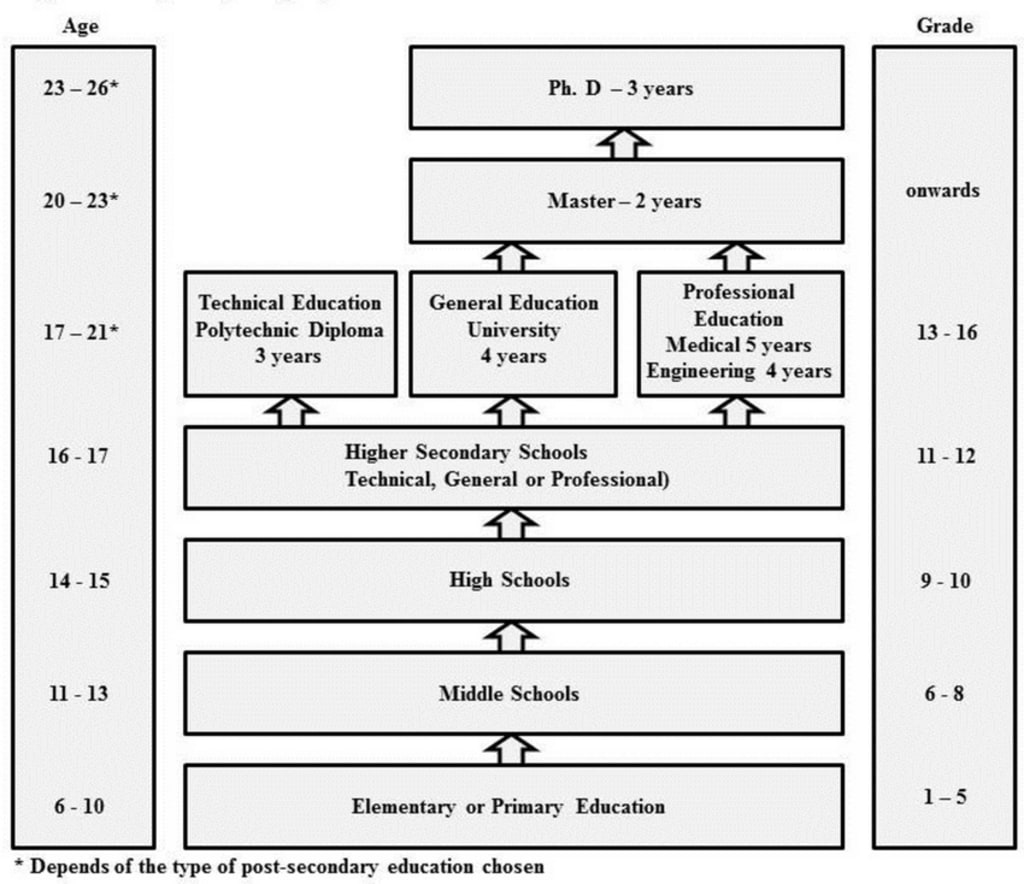Education System of PAKISTAN
Educational System of Pakistan and which reforms does it need.

Pakistan is a country in South Asia with a population of over 220 million people. Education is a crucial sector for the development and progress of any country, and Pakistan is no exception. However, Pakistan's education system faces several challenges, including low literacy rates, inadequate funding, outdated curriculums, and a lack of quality teachers.
The education system in Pakistan is divided into four levels: primary, middle, secondary, and tertiary education. Primary education is compulsory for all children between the ages of five and nine, but many children, particularly girls, do not attend school. According to the Pakistan Education Statistics Report 2019-2020, the literacy rate in Pakistan is 60.8%, with significant disparities between genders and regions.
One of the biggest challenges facing Pakistan's education system is inadequate funding. The government's budget for education has been consistently low, with only 2.4% of GDP allocated to education in 2020-21. This lack of funding has resulted in poor infrastructure, inadequate resources, and a shortage of qualified teachers.
Another significant challenge is the outdated curriculum used in many schools. The curriculum focuses heavily on rote learning and memorization, rather than critical thinking and problem-solving skills. Additionally, the curriculum does not adequately address issues of gender equality, human rights, and social justice. There is also a lack of quality teachers in Pakistan. Many teachers are not adequately trained or qualified, and the salaries of teachers are often low, resulting in a high turnover rate. Moreover, teachers' qualifications are not always verified, leading to cases where unqualified individuals are appointed as teachers.
The education system in Pakistan has been a cause for concern for several years, with low literacy rates and inadequate funding being the primary challenges. However, a group of education reformers has been working tirelessly to bring about change and improve the education system in Pakistan.
One of the leading education reformers in Pakistan is Raza Shahid, a former school teacher who left his teaching job to start an NGO dedicated to improving education in Pakistan. Raza Shahid's organization, Education for All, works in some of the most disadvantaged areas of Pakistan, providing quality education to children who would otherwise not have access to it.
Education for All has established several schools in rural areas of Pakistan, providing free education to children from low-income families. The organization focuses on providing a curriculum that emphasizes critical thinking and problem-solving skills, rather than rote learning and memorization. The organization also employs qualified teachers and provides ongoing training to ensure that the quality of education remains high.
Raza Shahid's organization has inspired other education reformers in Pakistan, leading to the creation of several other NGOs and initiatives focused on improving education in the country. One such initiative is the Prime Minister's Education Reforms Program, which aims to provide access to quality education to all children in Pakistan.
The Prime Minister's Education Reforms Program is focused on several key areas, including increasing enrollment in schools, improving the quality of education, and promoting gender equality. The program also aims to provide better infrastructure and resources to schools, as well as investing in the training and development of quality teachers.
The government has also taken steps to address the outdated curriculum used in many schools. In 2020, the government announced that it would be revising the national curriculum to focus on critical thinking and problem-solving, as well as incorporating issues of gender equality, human rights, and social justice.
The education system in Pakistan still faces significant challenges, but the work of education reformers like Raza Shahid and the government's commitment to education reform provide hope for the future. With continued investment in education and ongoing efforts to reform the system, Pakistan can provide quality education to all children, leading to a more prosperous and equitable society. It is clear that Pakistan's education system needs significant reform to overcome the challenges it faces. The government needs to increase funding for education, update the curriculum to focus on critical thinking and problem-solving, and invest in the training and development of quality teachers. Additionally, there needs to be a greater emphasis on gender equality, human rights, and social justice in the curriculum to create a more inclusive and equitable society.
In conclusion, the education system of Pakistan faces significant challenges, but with the right reforms and investments, it has the potential to transform the country and improve the lives of millions of people.
About the Creator
Ahmad Yar Khan
I am a 24 year old citizen of Pakistan. I will keep posting stories about current affairs and other minor issues we face in our daily life and my take on it. Your Tip ($) can help me meet my expenses.
Reader insights
Nice work
Very well written. Keep up the good work!
Top insight
Heartfelt and relatable
The story invoked strong personal emotions






Comments
There are no comments for this story
Be the first to respond and start the conversation.